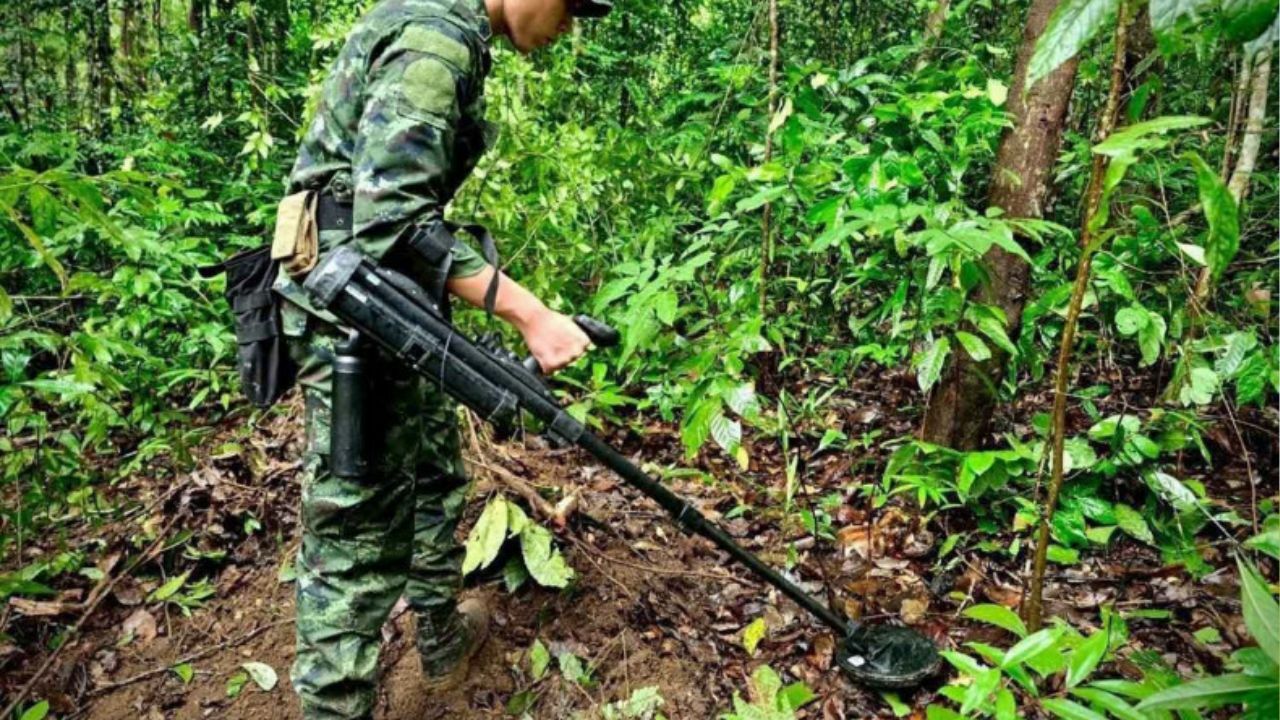Thai engineers clear mines after explosion near Cambodia border
Border safety ramped up as explosive risk sparks urgent military response

Combat engineers initiated mine-clearing efforts in the Chong Bok area, near the Thai-Cambodian border in Ubon Ratchathani province, following a landmine explosion that injured three Thai soldiers on July 16.
The Second Army Region, overseeing the northeast, reported that Suranaree Task Force combat engineers started operations yesterday, July 20. This was in response to reports of approximately 100 landmines found in Thailand’s Chong Bok border area after Cambodian soldiers had withdrawn.
The regional army command noted that combat engineers initially found landmines, seemingly placed to hinder troop movements, along with cluster bombs capable of causing significant damage. Consequently, engineers exercised utmost caution during the clearance operations.
The team utilised heavy machinery, including armoured tractors, to ensure the safety of Thai soldiers stationed along the border. Simultaneously, evidence was collected to support allegations that Cambodia breached the Ottawa Treaty, which bans anti-personnel mines, as per sources.
These operations followed the July 16 landmine explosion in the Chong Bok area, which injured three soldiers, including one who lost a foot. Investigations revealed that the explosive was among approximately 100 newly laid mines amidst border tensions between Thailand and Cambodia.
Lieutenant General Boonsin Padklang, commander of the Second Army Region, had previously indicated there would be a response to the landmine deployment.
Mine-clearing
RAdm Surasant Kongsiri, spokesperson for the government’s Ad Hoc Centre for Thailand-Cambodia Border Situation, announced that the centre would convene a full-panel meeting at the National Security Council on Monday to examine findings from the landmine explosion investigation and subsequent actions.
Major General Winthai Suvaree, spokesperson for the Royal Thai Army (RTA), stated yesterday that RTA soldiers had discovered PMN-2 landmines, Russian-made devices not used by RTA forces, in the Chong Bok area.
He mentioned that Cambodia had provided photos and videos alleging RTA soldiers’ involvement in laying the mines. However, Maj. Gen. Winthai clarified that the images and footage were from a training session conducted by the Thailand Mine Action Centre, describing the accusation as a distortion of facts damaging to Thailand’s reputation.
Cambodia’s assertion that the mines were located on Thai soil, he noted, strongly implied they were planted by individuals who illegally crossed into Thai territory.
In Bangkok yesterday, demonstrators rallied at the Cambodian embassy to protest the landmine planting that led to the July 16 explosion.
Pichit Chaimongkol of the People and Student Network for the Reform of Thailand led the protest, stating the use of landmines violated the Ottawa Treaty and endangered Thailand’s security.
Last night, Nikorndej Balankura, spokesperson for the Thai Ministry of Foreign Affairs, expressed strong condemnation from the Thai government regarding the use of anti-personnel mines, citing a violation of Thai sovereignty, the Ottawa Treaty, and international laws.
He urged Cambodia to collaborate in removing landmines along the border, as both countries had previously agreed at the bilateral level, reported Bangkok Post.
Latest Thailand News
Follow The Thaiger on Google News:


























